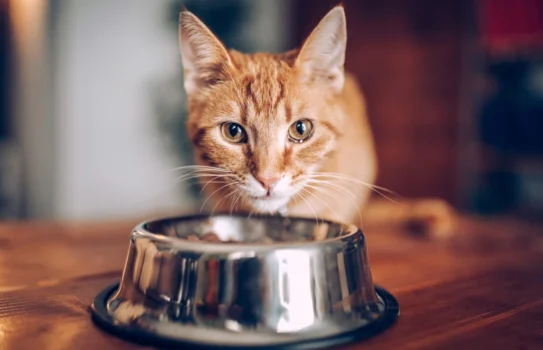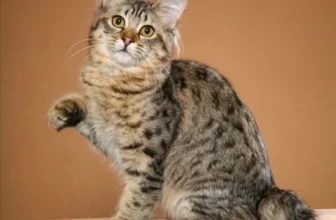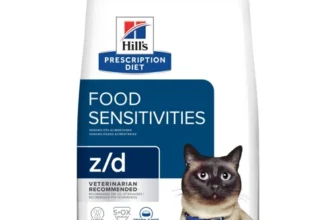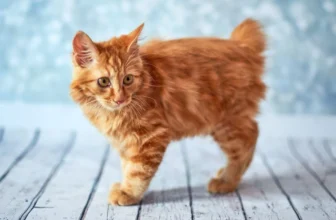As a cat owner, you want to ensure that your furry friend gets the best nutrition possible. Homemade diets are becoming increasingly popular for American Bobtail cats. Preparing homemade diets offers several benefits, such as ensuring quality, freshness, and control over nutritional balance and supplements. However, in preparing homemade diets, there are some common mistakes that you should avoid. In this article, we’ll explore these mistakes and offer suggestions on how to prepare a homemade diet for your American Bobtail that’s both healthy and tasty. So, let’s dive in!
Why Prepare Homemade Diets for your American Bobtail?
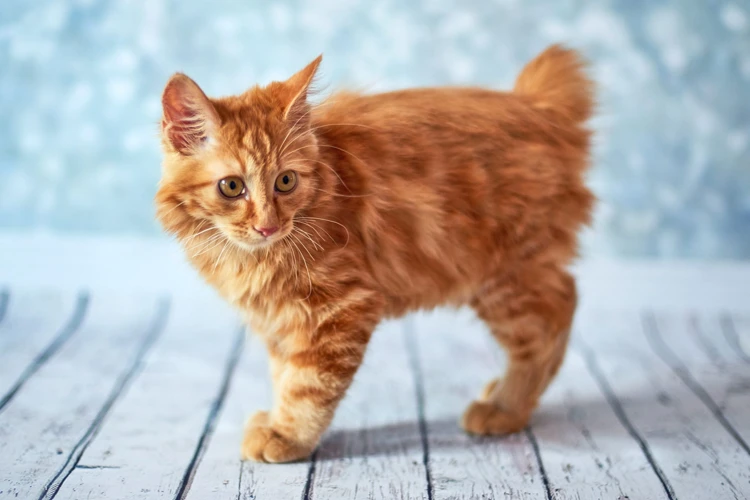
Providing your American Bobtail with a well-balanced diet is an essential aspect of responsible pet ownership. While commercial cat foods are readily available, there is a growing trend of pet owners opting for homemade diets. But why exactly? – you may wonder. There are several reasons why pet parents would choose to prepare their American Bobtail’s meals themselves. Firstly, homemade diets allow you to ensure the quality and freshness of your cat’s food. Additionally, it’s easier to control the nutritional balance of the meal and add appropriate supplements. In this part of the article, we’ll explore the benefits of preparing homemade diets for your American Bobtail and explain why it’s a good idea to consider this option. If you want to know more about nutrition requirements for American Bobtail, check out our article about Bobtail Nutrition Requirements.
Ensure Quality and Freshness
Making sure that your American Bobtail is getting high-quality and fresh food is essential when preparing homemade diets. A well-balanced and healthy diet translates to a happy and healthy cat. However, it’s important to keep in mind that not all food is created equal, and not all foods are suitable for your furry friend.
Quality ingredients equal quality diets – Whenever possible, choose organic, high-grade ingredients. High-grade ingredients provide better nutrition and fewer toxins than lower-grade products. You want to avoid ingredients with additives, fillers or by-products, as these can be harmful to your cat in the long run.
Checking expiry dates and storage conditions – Always check the expiry date of any food product before using it in your cat’s diet. Store the food in the appropriate conditions, whether it’s the refrigerator or airtight containers, to ensure that the food remains fresh and safe to eat.
Proper sourcing of ingredients – When buying ingredients, it’s essential to know where the food comes from. Choose suppliers who responsibly source their ingredients and who prioritize ethical and sustainable practices. This will ensure that your cat’s food is of the highest quality and minimizes the risk of contamination.
If you’re going to stockpile food ingredients for future use, you must exercise some caution. It’s crucial to be aware of the shelf lives of food products and shop mindfully. Plan meals in advance to avoid buying too much food or letting ingredients go to waste.
Ensuring that your American Bobtail’s meals are fresh and of high quality can prevent a host of health complications. Choosing fresh and high-grade ingredients, checking expiry dates and storage, and responsibly sourcing food are the best practices for a healthy homemade diet. By following these guidelines, you can make meals that are safe, nutritious and enjoyable for your cat, promoting a long and healthy life.
For more information about the pros and cons of homemade diets for American Bobtail cats, click here.
Control Nutritional Balance and Supplements
When you prepare homemade diets for your American Bobtail cat, you have complete control over the nutrients they consume. This is crucial because cats require nutrients that are not present in most human foods. It is important to ensure that your cat’s diet is nutritionally balanced.
Why is nutritional balance important?
A balanced diet ensures that your cat receives all the necessary nutrients in the right amounts. Nutritional imbalance can lead to deficiencies or excesses, which can cause health problems for your American Bobtail. For example, a diet that is high in fat and calories can lead to obesity, heart disease, and liver problems.
How to achieve nutritional balance?
To achieve a balanced diet, you need to consider the following macronutrients: proteins, fats, and carbohydrates. Each of these nutrients plays a critical role in your cat’s health. Proteins are necessary for the growth and repair of cells, while fats provide energy and support brain function. Carbohydrates also provide energy and aid digestion.
It’s important to note that cats are obligate carnivores, which means their bodies are better adapted to digesting animal protein than plant protein. It’s essential to use high-quality animal protein sources when preparing homemade diets for your American Bobtail.
What about Supplements?
In addition to macronutrients, your cat’s diet requires micronutrients such as vitamins and minerals. These nutrients are found in high-quality commercial cat food, but may not be present in homemade diets. It’s essential to consult with a veterinarian or a board-certified veterinary nutritionist to ensure that your cat’s diet is complete and balanced.
Some of the most important supplements to consider for your American Bobtail’s diet include Vitamin E, Omega-3 Fatty Acids, and Taurine. Vitamin E is essential for cellular health, while Omega-3 Fatty Acids promote heart and brain health. Taurine is crucial for maintaining healthy eyes and heart function.
Incorporating high-quality supplements into your American Bobtail’s diet can help ensure they receive essential nutrients not provided by homemade meals.
Consider these resources to learn more about balancing macronutrients, choosing the best protein sources, and selecting the right supplements for your American Bobtail:
- How to Balance Macronutrients for Your American Bobtail
- The Best Protein Sources for Your American Bobtail
- Essential Supplements for Your American Bobtail
By considering all these elements, you can prepare a homemade diet that meets your American Bobtail’s nutritional needs and will keep them healthy and happy.
Common Mistakes to Avoid
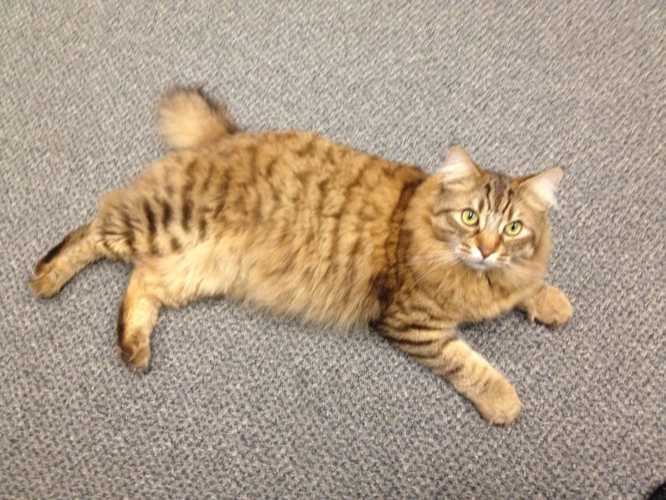
When it comes to preparing homemade diets for our American Bobtail cats, avoiding common mistakes is crucial for maintaining their health and wellbeing. However, with so many potential mistakes to be made, it can be perplexing to know where to start. From nutrient deficiencies to inappropriate ingredients, it’s important to be aware of the possible pitfalls to ensure that our furry friends get the best possible diet. In this section, we’ll explore the common mistakes to avoid when preparing homemade diets for American Bobtail cats, and offer helpful tips to keep your cat healthy and happy.
Not Meeting Nutritional Needs
One of the most common mistakes that pet owners make when preparing homemade diets for their American Bobtail cats is not meeting their nutritional needs. Cats are obligate carnivores, which means that they require a high amount of protein from animal-based sources. Inadequate protein intake can lead to a variety of health problems, including muscle wasting, weight loss, and immune system dysfunction.
Another essential nutrient that is often neglected in homemade cat diets is taurine. Taurine is an amino acid that is critical for maintaining healthy heart function, vision, reproduction, and immune system health. Without enough taurine, cats can suffer from blindness, heart disease, and other severe health issues.
Inadequate levels of vitamins and minerals are also common deficiencies in homemade diets. For example, a lack of vitamin A can lead to night blindness and an impaired immune system, while a lack of calcium can result in weak bones and teeth.
To ensure that a homemade diet meets the nutritional needs of an American bobtail cat, it is important to include appropriate amounts of essential nutrients, such as protein, taurine, vitamins, minerals, and fatty acids. One way to achieve this is by using a recipe that has been formulated by a veterinary nutritionist or consulting with your veterinarian.
Here’s a table highlighting some of the essential nutrients that should be included in a homemade diet for an American Bobtail cat:
| Nutrient | Importance | Food Sources |
|---|---|---|
| Protein | Builds and repairs tissues, produces enzymes and hormones | Meat, fish, poultry, eggs, dairy |
| Taurine | Maintains healthy heart function, vision, reproduction, and immune system health | Meat, fish, shellfish |
| Vitamin A | Maintains healthy skin, vision, and immune system | Liver, fish oil, egg yolks, dairy, carrots, spinach |
| Calcium | Builds and maintains strong bones and teeth, muscle function | Dairy, bone meal, eggshells, canned fish with bones |
| Fatty Acids | Maintains healthy skin and coat, reduces inflammation | Fish oil, flaxseed oil, poultry fat, meat fat |
It is important to note that too much of a nutrient can be just as harmful as too little. Hence, it is essential to get the balance right while preparing a homemade diet for your American Bobtail cat, and it is always best to seek advice from an expert.
Using Inappropriate Ingredients
One of the biggest mistakes pet owners make when preparing homemade diets for their American Bobtail cats is using inappropriate ingredients. Using the wrong ingredients can lead to nutrient deficiencies or even toxicity in your cat. So, what are some of the inappropriate ingredients to avoid?
Table: Inappropriate Ingredients for American Bobtail Cats
| Ingredient | Why it’s Inappropriate |
|---|---|
| Garlic and Onion | Can cause anemia and damage to red blood cells in cats. |
| Chocolate | Contains theobromine, which can cause vomiting, diarrhea, hyperactivity, and increased urination. In severe cases, it can cause seizures and even death. |
| Grapes and Raisins | Can cause kidney failure in cats. |
| Avocado | Contains persin, which is toxic to cats and can cause vomiting, diarrhea, and difficulty breathing. |
| Bones | Can cause choking, gastrointestinal blockage, or puncture wounds to the digestive system. |
As you can see from the table above, there are several ingredients that are highly inappropriate for your American Bobtail cat. These ingredients can cause various health issues ranging from mild to severe, and in some cases, death. As a responsible pet owner, it’s important to be aware of what you’re feeding your cat and to avoid any inappropriate ingredients.
Instead of these inappropriate ingredients, ensure you include high-quality protein sources such as chicken, turkey, or fish. But make sure to cook the meat thoroughly to kill any harmful bacteria. Additionally, you should include healthy vegetables and fruits that provide essential vitamins, minerals, and fiber for your American Bobtail cat. However, be cautious of which ones you use as some can be toxic.
Using inappropriate ingredients when preparing homemade diets for your American Bobtail cat can be highly detrimental to their health. It’s crucial that you research each ingredient used, and ensure the food serves your pet’s nutritional needs appropriately. Always consult with your veterinarian first before embarking on a new diet plan. A little extra time and effort can go a long way in ensuring your pet lives a healthy and happy life.
Not including Water
Water is an essential nutrient that is necessary for the healthy functioning of your American Bobtail’s body. However, one of the most common mistakes people make when preparing homemade diets for their pets is not including enough water. This can have serious consequences on your pet’s health and well-being.
Neglecting Water Can Lead to Dehydration
Dehydration can lead to various health problems for your American Bobtail. Lack of water can cause your pet to become lethargic, lose appetite and even lead to organ failure. Dehydration can also increase your pet’s risk of urinary tract infections or kidney problems. It is crucial to provide your pet with a sufficient amount of water every day.
Make Sure Your American Bobtail Has Access to Fresh Water
It is important to note that not all cats consume the same amount of water, and some may need more than others. Ensure that your American Bobtail has access to fresh and clean water at all times. Place water bowls in various locations around your home to encourage your pet to drink water throughout the day.
Include Wet Food in Your American Bobtail’s Diet
Incidentally, wet food contains high levels of moisture compared to dry food, making it a good source of water for your American Bobtail. You can also include water-rich vegetables and fruits such as cucumbers, lettuce, and watermelon in your pet’s diet.
Monitor Your American Bobtail’s Water Intake
Keep a watchful eye on your American Bobtail’s water intake. If you notice that your pet is avoiding water, consult with your veterinarian to rule out underlying health problems. Also, watch out for signs of dehydration such as sunken eyes, dry mouth, lethargy, or panting.
Water is an essential nutrient that should never be overlooked when preparing homemade diets for your American Bobtail. Ensure that your pet has access to fresh water throughout the day, and include water-rich foods such as wet food or fruits in your pet’s diet. By doing so, you will help your American Bobtail maintain optimal health and well-being.
Using Unbalanced or Inappropriate Supplements
Supplements can be a great way to ensure your American Bobtail is getting all the essential nutrients they need. However, it’s important to be cautious when choosing and using supplements. Using unbalanced or inappropriate supplements can be harmful to your cat’s health.
Here are some common mistakes to avoid regarding supplements when preparing homemade diets for your American Bobtail:
- Don’t assume “natural” means safe: Just because a supplement is labeled as “natural” does not mean it is safe or appropriate for your cat. Some natural supplements, such as certain herbs, can have adverse effects on feline health.
- Avoid excessive supplementation: Over-supplementing can lead to imbalances that can be just as harmful as deficiencies. It’s essential to consult with your veterinarian or a feline nutritionist to ensure your cat’s unique nutritional needs are being met.
- Avoid using dog supplements: Supplements designed for dogs can be dangerous to cats. They may contain ingredients that are toxic to felines or lack essential nutrients that cats need to thrive.
- Don’t use expired supplements: Expired supplements can lose potency and become ineffective. It’s essential to check the expiration dates on any supplements you use and replace them promptly when they expire.
- Avoid using supplements that interact with medications: Some supplements can affect the efficacy of prescription medications or cause adverse reactions. It’s crucial to inform your veterinarian about any supplements your cat is taking, even if they seem harmless.
By avoiding the above mistakes, you can ensure that any supplements you use in your American Bobtail’s diet are appropriate and beneficial. Remember, consulting with a professional can help you choose the best supplements for your cat’s unique nutritional needs.
Incorrectly Storing and Handling Food
Proper storage and handling of your American Bobtail cat’s homemade diet is extremely important. If you handle and store food incorrectly, it can lead to spoilage and contamination, which can be harmful to your cat’s health. Below are some common mistakes to avoid when storing and handling food for your cat:
- Leaving Food Out for Too Long: Leaving food out for too long can cause it to spoil or become contaminated with harmful bacteria. Always store your cat’s food in an airtight container in the refrigerator.
- Using Contaminated Utensils: Using contaminated utensils to prepare your cat’s food can lead to the spread of harmful bacteria. Always wash your hands and utensils with soap and water before handling your cat’s food.
- Not Checking Expiration Dates: Always check the expiration dates on the ingredients you use to prepare your cat’s food. Expired ingredients can be harmful to your cat’s health.
- Storing Food at the Wrong Temperature: Storing your cat’s food at the wrong temperature can cause it to spoil. Always keep your cat’s food in the refrigerator at a temperature of 40°F or below.
- Using Dirty Containers: Dirty containers can harbor harmful bacteria that can contaminate your cat’s food. Always wash containers with soap and water before using them to store your cat’s food.
- Not Discarding Uneaten Food: Leaving uneaten food out for too long can cause it to spoil and become contaminated with harmful bacteria. Always discard uneaten food after 24 hours.
By avoiding these common mistakes and following proper storage and handling techniques, you can ensure that your American Bobtail cat’s homemade diet is fresh and safe to eat.
How to Prepare a Homemade Diet for your American Bobtail
Taking charge of your American Bobtail’s diet and preparing it at home may seem like a daunting task, but it comes with several benefits, including control over ingredients and nutrient balance. To ensure that your furry friend gets a well-balanced and nutritious meal, there are several essential things that you need to keep in mind. Below, we’ve outlined the important steps that you should follow to prepare a homemade diet for your American Bobtail. By following these tips, you’ll be able to provide your pet with a healthy and delicious meal that they’ll love!
Get Professional Advice
One of the most crucial steps to successfully preparing homemade diets for your American Bobtail cat is to seek professional advice. Your veterinarian can provide you with invaluable guidance on the specific nutritional requirements of your cat and recommend what type of diet would best suit their needs.
It is important to note that the dietary needs of cats can vary widely depending on factors like their age, weight, health status, activity level, and any underlying medical conditions. It is essential to get personalized advice to create a diet plan tailored to your cat’s unique needs.
Some key components that your veterinarian may recommend including in your cat’s homemade diet are high-quality protein sources, essential fatty acids, vitamins and minerals, and probiotics. They may also advise you on how much food to feed your cat and how to properly transition them to their new diet.
Additionally, your vet may recommend special dietary supplements to address any deficiencies or specific health concerns. These supplements can play an important role in ensuring your cat’s overall health and help prevent a range of health problems, such as obesity, dental issues, and digestive problems.
To summarize, seeking professional advice before preparing homemade diets for your American Bobtail cat is a vital step to ensuring their health and longevity. It is essential to follow the guidance of your veterinarian and use high-quality ingredients for the best possible results.
| Reasons to Get Professional Advice: |
|
|---|
Use High-Quality Ingredients
One of the most important things to consider when preparing homemade diets for American Bobtail cats is to use high-quality ingredients. This is because the quality of the ingredients will ultimately determine the nutritional value of the food, and will also directly impact the overall health of your pet. Here are some tips to keep in mind when selecting your ingredients:
- Choose fresh, whole ingredients that are free from preservatives, additives, and artificial flavors. Such ingredients will provide the necessary nutrients your cat needs, and will also taste better.
- Look for protein sources that are high in omega-3s and amino acids, such as chicken, turkey, and fish. Avoid low-quality protein sources like by-products and fillers, which lack essential nutrients and can lead to obesity and poor health.
- Include plenty of vegetables that are high in fiber and vitamins, such as spinach, broccoli, and carrots. These will help to maintain good gut health and digestive function.
- Avoid including foods that are toxic to cats, such as chocolate, garlic, and onions. These can cause serious health problems or even death in some cases.
Remember to always read the labels of the foods you buy carefully, and to avoid any products that contain questionable or low-quality ingredients. Investing in high-quality ingredients may cost a bit more, but it will ultimately save you money on veterinary bills down the line. By using fresh, whole, and nutritious ingredients, you can be sure that your American Bobtail cat is getting the best possible nutrition and care. So, always choose wisely!
Include Essential Nutrients, Supplements and Probiotics
It is essential to include all the necessary nutrients, supplements, and probiotics when preparing homemade diets for American Bobtail cats. This ensures that they receive all the nutrients they need to grow and stay healthy.
To make sure your cat is getting a balanced diet, include the following nutrients:
- Protein: A high-quality source of protein is essential for your cat’s muscle growth and repair. Good sources include chicken, fish, and beef.
- Fats: Cats need fats for energy and to maintain healthy skin and coat. Fatty fish such as salmon and sardines are good sources of omega-3 fatty acids, which are essential for cats.
- Carbohydrates: While cats don’t need carbohydrates in their diet, they can provide an additional source of energy if needed. Good sources include brown rice and sweet potatoes.
- Vitamins: Vitamins such as A, D, and E are essential for your cat’s health. Good sources include egg yolks, liver, and leafy green vegetables.
- Minerals: Minerals such as calcium, phosphorus, and potassium are important for your cat’s bone and muscle health. Good sources include dairy products, fish, and meat.
In addition to these essential nutrients, you may also want to include supplements and probiotics in your cat’s diet to ensure they are getting everything they need. However, it is important to consult with your veterinarian before adding any supplements to your cat’s diet.
Some common supplements and probiotics for cats include:
- Taurine: An essential amino acid that cats cannot produce on their own. Taurine plays a key role in heart and eye health.
- Fish oil: A supplement that provides additional omega-3 fatty acids, which are essential for cats.
- Probiotics: Good bacteria that help maintain a healthy digestive system.
- Green-lipped mussel extract: A supplement that can help reduce joint inflammation and improve mobility.
By including essential nutrients, supplements, and probiotics, you can ensure that your American Bobtail cat is getting all the nutrients they need to thrive. However, it is important to consult with your veterinarian to ensure that you are providing a balanced and complete diet for your furry friend.
Ensure Adequate Water Intake
Water intake is crucial for maintaining good health in cats, and it is especially important when it comes to homemade diets. In order to ensure that your American Bobtail is getting enough water, there are several steps you can take:
- Provide Fresh Water: Ensure that your cat always has access to fresh, clean water.
- Add Water to the Diet: Increase the moisture content of your cat’s food by adding water to the meal. This can be done by either adding water to dry food or mixing canned food with water.
- Avoid Overfeeding: Overfeeding can lead to obesity and other health problems, so it’s important to monitor your cat’s diet and avoid giving them too much food.
- Monitor Water Intake: Keep an eye on how much water your cat is drinking each day. If you notice a significant decrease in water intake, this could be a sign of an underlying health problem and you should consult with your veterinarian.
- Hydrate with Broth: Consider offering low-sodium chicken or beef broth as an occasional treat or hydration booster. This can provide extra nutrients and hydration in a tasty way that your cat will enjoy.
Remember, adequate water intake is essential for maintaining good health and preventing dehydration in your American Bobtail. By following these simple steps, you can help ensure that your cat is staying hydrated and healthy on their homemade diet.
Follow Good Hygiene Practices
Maintaining proper hygiene practices is crucial when preparing homemade diets for your American Bobtail cat. Failure to manage hygiene can lead to bacterial and fungal infections, which can be deadly for your pet. Here are some essential tips to follow:
| Tip | Description |
|---|---|
| Wash Hands | Ensure that your hands are clean and germ-free before preparing the food. Wash them with soap and water for at least 20 seconds. |
| Clean Surfaces | The preparation area, utensils, and equipment must be cleaned and disinfected before use. Use hot soapy water to clean surfaces and rinse thoroughly. |
| Store Properly | Store the food in airtight containers in the refrigerator or freezer. Ensure that the food does not stay at room temperature for more than two hours, as it can promote bacterial growth. |
| Use Separate Utensils | Use different utensils for preparing raw and cooked food. This will prevent cross-contamination and the spread of bacteria. |
| Check for Spoilage | Discard any food that has an unusual smell, color, or texture. This could indicate spoilage, which can be harmful to your pet. |
By following these guidelines, you can make sure that your American Bobtail cat’s food is clean and safe for consumption. Remember to always consult with your veterinarian and do your research to ensure that the homemade diet meets your cat’s nutritional requirements.
Consult with Your Veterinarian
When preparing homemade diets for your American Bobtail cat, always consult with your veterinarian. Here are some key reasons why:
- Veterinarians Know Your Cat’s Health: Your veterinarian is familiar with your cat’s medical history, health conditions, and unique dietary needs. They can provide recommendations on the proper nutritional contents and supplements needed in your cat’s homemade diet.
- Prevent Nutritional Deficiencies: Your veterinarian can ensure that the homemade diet you are preparing meets all of your cat’s nutritional requirements to prevent any potential nutritional deficiencies.
- Ensure Safe Ingredients: Your veterinarian can also advise you on which ingredients are safe and appropriate to use in your cat’s homemade diet, and which should be avoided.
- Adjust Recipes for Cats with Health Issues: If your American Bobtail cat has any health issues or requires special dietary restrictions, your veterinarian can help you adjust your homemade diet recipe accordingly.
While it may seem tempting to prepare your cat’s food without consulting a veterinarian, it’s important to remember that homemade diets can be tricky to balance properly. Only a veterinarian can ensure that your cat’s specific nutritional needs are being met to promote optimal health and well-being.
Conclusion
After understanding the basics of preparing homemade diets for American Bobtail cats, it is clear that there are benefits and risks associated with the practice. When done correctly, homemade diets can offer fresh and high-quality nutrition that can help maintain a healthy weight and prevent certain medical conditions.
However, it is important to remember the common mistakes that can be made when preparing these diets, such as not meeting nutritional needs or using inappropriate ingredients. These mistakes can lead to nutritional deficiencies and health issues. It is crucial to consult with a veterinary professional and receive guidance on how to properly balance the nutritional content of homemade diets.
Furthermore, using high-quality ingredients, essential nutrients, supplements, and probiotics can help ensure that American Bobtail cats are receiving the necessary nutrition for their health and wellbeing. Adequate water intake and good hygiene practices are also essential components of preparing homemade diets.
In conclusion, preparing homemade diets for American Bobtail cats can be a beneficial practice, but it requires careful consideration and proper execution. By taking the necessary steps and receiving professional guidance, cat owners can provide their pets with the best possible nutrition and ensure their overall health and happiness.
Frequently Asked Questions
How do I ensure the homemade diet for my American Bobtail is nutritionally balanced?
You can consult with a veterinary nutritionist or use a reputable recipe that has been formulated by a veterinary professional.
Can I use meat from the grocery store to prepare my cat’s diet?
As long as the meat is fresh, unprocessed, and fit for human consumption, it can be used. However, it’s important to note that some grocery store meat may come from sources with a high potential for contamination.
Why is water important in my cat’s diet?
Water is essential for the overall health of your cat, and a lack of water intake can lead to health issues such as dehydration and urinary tract problems.
Can I use supplements to make up for nutrients missing in my homemade cat diet?
While supplements can be used, they should be balanced and appropriate for your cat’s specific dietary needs. It’s important to consult with a veterinary professional to ensure you are providing the right amount of supplements.
What are some good sources of protein for my cat’s homemade diet?
Some good protein sources include poultry, fish, beef, and lamb. It’s important to choose lean cuts and avoid processed meats such as deli ham or bacon.
Can I use vegetables in my cat’s homemade diet?
Yes, vegetables can be a good source of essential vitamins and minerals for your cat. Examples of good vegetable sources include spinach, broccoli, and carrots. However, keep in mind that cats are obligate carnivores and require a higher proportion of animal-based protein in their diet.
How often should I prepare my cat’s homemade diet?
It’s recommended to prepare your cat’s food in small batches every two to three days to ensure freshness and nutritional value.
Is it safe to store homemade cat food in the fridge?
Yes, homemade cat food can be safely stored in the fridge for up to three days. Make sure to store it in an airtight container to prevent contamination.
Can I feed my cat a raw homemade diet?
While some cat owners choose to feed their cats a raw diet, there are risks associated with handling raw meat and possible contamination. It’s important to speak with a veterinary professional before choosing a raw diet for your cat.
What are some signs that my cat’s homemade diet is not nutritionally balanced?
If your cat is experiencing weight loss, lethargy, dental issues, or digestive problems, it could be a sign that their homemade diet is not nutritionally balanced. Consult with a veterinary professional if you notice any changes in your cat’s health.

